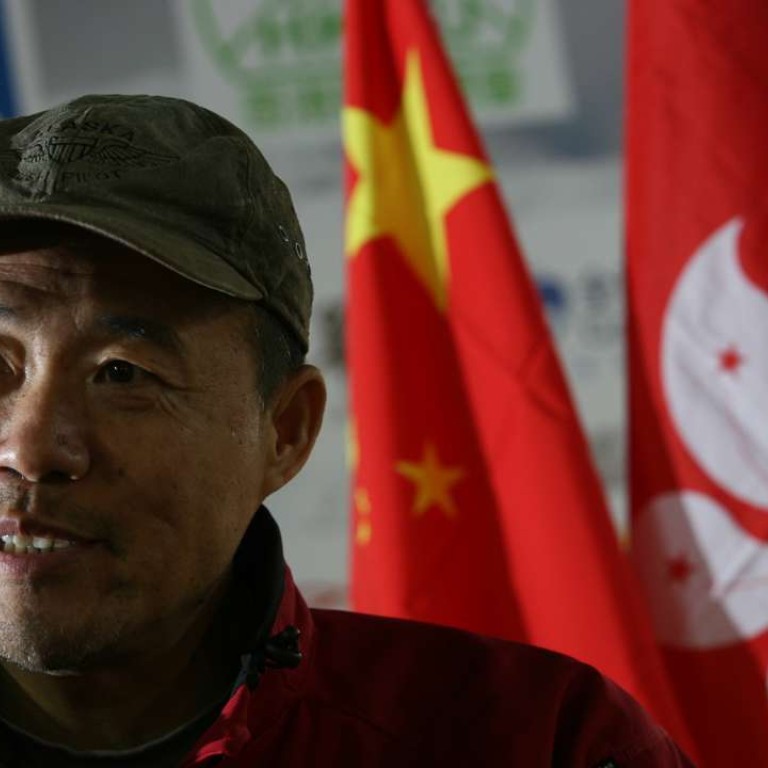
Vanke’s Wang Shi: Evergrande is not merely a financial investor in housebuilder
Wang brushes aside shareholding issue, while talked up policy tightening, land values and Vanke’s own plans for transition
Wang Shi, the chairman of embattled housebuilder China Vanke, believes China Evergrande Group’s recent purchases of his company’ shares are not purely for investment.
Wang was asked on Saturday during a session at the annual Caixin Forum whether Evergrande’s recent moves to increase its holding in Vanke goes beyond merely a financial investment, as Evergrande officials have claimed in the past.
“I agreed with your judgement”, the tycoon at the centre of the long-running takeover battle said to the questioner, without elaborating further.
Evergrande last week took a step closer to being granted a seat on its board of directors after increasing its holding in Vanke.
On Tuesday, it revealed it had spent 12 billion yuan to increase its stake in Vanke, the country’s largest homebuilder, to 14.07 per cent.
Evergrande is now Vanke’s third largest shareholder, and is narrowing the gap with second largest shareholder China Resources, which owns 15.29 per cent of Vanke stock.
Analysts believe Evergrande’s aggressive buying has been in an effort to secure a seat on its rival’s board, which will give it a degree of control over the business.
Vanke has been under growing buying pressure since late last year when little-known insurer Baoneng Group launched what appeared to be the start of a hostile takeover for of the company, when it bought 25.4 per cent of its stock.

Evergrande entered the fray in the summer, and has been gradually building its stake since then.
The protracted battle for control of Vanke has also attracted regulatory attention.
On Saturday, China Securities Regulatory Commission chairman Liu Shiyu slammed what he called “barbaric buyouts” of public firms’ shares by insurance firms, accusing them of using highly leveraged “questionable” funds, during a meeting of the Asset Management Association of China, a self-regulatory body that oversees private funds.
Acquisition backed by insurance funds will inevitably affect the target company’s share price, and could threaten the corporate governance structure, he said.
“Funnelling public funds into leveraged acquisition means ordinary investors will ultimately bear the risk,” he said, underscoring this is absolutely not “financial innovation.”
At the beginning of his session at the Caixin Forum, when asked about how he viewed the top Chinese regulator’s comments on equity buyouts, Wang said:“My public relations personnel have not prepared me a script to answer your question.”
Instead, the iconic entrepreneur spent most of the time sharing his thoughts on China’s property market controls, land policy and Vanke’s own vision for transformation.
He described himself as a firm supporter of “control” policies, saying his only worry is that the government’s current harsh controls would soften over time.

“Home prices must be regulated. Why not? Because China is neither a market economy nor a command economy. Under the circumstances, control is the only viable option,” he said.
He also said that the Chinese government’s monopoly on land sales, copied from Hong Kong, was the reason why homes prices have become unaffordable for many.
He said he expected that over the next decade, the government’s land sale model would have to change, adding local governments have been putting too heavy an reliance on them.
A core problem is land use efficiency. He said if Beijing’s land use efficiency could reach a half that of Hong Kong’s, the capital city could accommodate 100 million people, compared with its current population of 22 million people.
He also said Vanke is now firmly on a transition to becoming purely a “contractor”, instead of being a traditional developer that takes charge of everything, including land acquisition, planning, construction and marketing.
“We’ve talked a lot about how to ‘industrialise’ the residential property development process, replacing labourers with machines and standardising processes such as manufacturing,” he said, citing the growing costs of land acquisition and surging construction workers’ wages.

